Maryland, South Dakota, and Louisiana have joined 21 other states in legalizing sports betting. For big names in the industry like FanDuel and DraftKings, this represents a windfall and an exciting new chapter in the legal sports wagering market.
Louisiana
Voters in Louisiana approved a sports betting proposition on their ballot this past week. This marks the first such move in the state towards a change in the law.
The gambling industry in the state is moving quickly to get the first sports book up and running. Plans have already begun at L’Auberge Casino. “It’s where our guests could come, place their wagers, watch games, enjoy some food, and relax. We would build out a whole new section for that,” said Kim Ginn, the General Manager of L’Auberge Casino. She went on, “It’ll go in the legislative session starting in April. Once it’s made into law, then rules have to be made by the Louisiana Gaming Control Board, which controls us.”
Ginn, the General Manager of L’Auberge Casino. She went on, “It’ll go in the legislative session starting in April. Once it’s made into law, then rules have to be made by the Louisiana Gaming Control Board, which controls us.”
The state legislature approved the bill early in 2020 to add the sports betting question to this year’s ballot. The final tally saw fifty-five out of Louisiana’s sixty-four parishes voting for the measure. However, it will be some time before the first wagers are cast. Mike Noel is the Lieutenant Colonel for the Louisiana Gaming Control Board. He doesn’t believe residents will see open sports books opened until at least 2022. “It’s just the way the process works. The legislature has to lay out the framework, and then the rule-making process is a four to six-month process. Once that happens, the entities that wasn’t to participate will have to apply and get licensed,” says Noel.
Maryland
Maryland voters responded positively to question 2 on this year’s ballot, approving the expansion into legalized sports betting. Maryland’s ballot measure added the proposition that revenue generated from the sports gambling industry would be funneled primarily into the state’s public education system.
The measure passed with nearly 70% approval in the state. In addition, the Maryland legislature has expressed near unanimous support including Governor Larry Hogan.
“Question 2 provides a critical revenue source for public education without raising taxes on families and businesses. This initiative builds on the very successful ‘Hogan Lockbox,’ which puts casino revenues in a lockbox dedicated to education. We are already funding our K-12 schools at record levels, and this is another way to ensure that is the case for years to come,” says Governor Hogan.
Maryland State Senator Craig Zucker posits the new sports gambling measure could bring in millions to the state education coffers. “The lowball assumption is that Maryland will get an additional $20 to $40 million in additional revenue from sports betting,” says Zucker.
South Dakota
Constitutional Amendment B will bring sports betting to Deadwood, South Dakota. Nearly 60% of South Dakota residents approved the measure to authorize sports betting in both Deadwood and the state’s Native American reservation casinos.
“Obviously, we’re encouraged by this. This is pacing a little bit better than we did in 2014 with craps and roulette,” said Mike Rodman. Rodman is the  Executive Director of the Deadwood Gaming Association. He went on, “we’re thankful to the voters of South Dakota for giving Deadwood this opportunity. We will reach out to the administration to see if they want to start working on some draft legislation for the 2021 session.”
Executive Director of the Deadwood Gaming Association. He went on, “we’re thankful to the voters of South Dakota for giving Deadwood this opportunity. We will reach out to the administration to see if they want to start working on some draft legislation for the 2021 session.”
The state constitution currently authorizes Keno, craps, roulette, slot machines, and limited card games in Deadwood casinos. The recent ballot measure now allows the state Legislature to include sports wagering as yet another form of gambling in Deadwood.
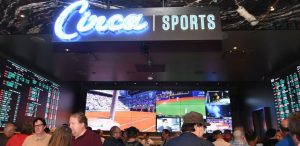 they came in. It almost got to a point where I was offended on behalf of sports bettors, and I decided if I got back in the position, I was going to make sure I righted a wrong that had existed, not at all sportsbooks but many, for the last 20 years.”
they came in. It almost got to a point where I was offended on behalf of sports bettors, and I decided if I got back in the position, I was going to make sure I righted a wrong that had existed, not at all sportsbooks but many, for the last 20 years.”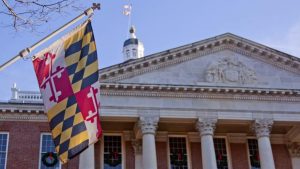 brick and mortar sports betting instillations. His bill passed the state Senate unanimously however, the House was only able to approve a paired down version before the legislative session was ended early due to the Covid-19 pandemic. Senator Zucker expects that the mobile gaming issue will ultimately be approved. “I can’t imagine a scenario where we wouldn’t allow mobile betting. Eighty to ninety percent of sports betting is done online.”
brick and mortar sports betting instillations. His bill passed the state Senate unanimously however, the House was only able to approve a paired down version before the legislative session was ended early due to the Covid-19 pandemic. Senator Zucker expects that the mobile gaming issue will ultimately be approved. “I can’t imagine a scenario where we wouldn’t allow mobile betting. Eighty to ninety percent of sports betting is done online.”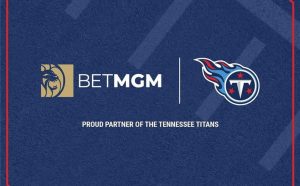 again in mid-October in order to review more applications and digest feedback from the sports betting operators that have already been issued licenses. There is currently no limit to how many licenses can be approved. Every license holder will be required to adhere to strict guidelines as set down by the Tennessee Education Lottery Corporation which is responsible for regulation of online sports wagering in the state.
again in mid-October in order to review more applications and digest feedback from the sports betting operators that have already been issued licenses. There is currently no limit to how many licenses can be approved. Every license holder will be required to adhere to strict guidelines as set down by the Tennessee Education Lottery Corporation which is responsible for regulation of online sports wagering in the state.

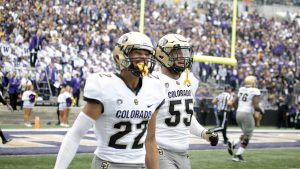 hopes the joint venture will also raise awareness about what responsible gaming can look like and the benefits of sports betting education.
hopes the joint venture will also raise awareness about what responsible gaming can look like and the benefits of sports betting education.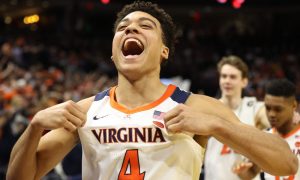 state (HB 896). The bill empowered the Virginia Lottery to approve no more than twelve sports betting licenses to both brick and mortar locations like Colonial Downs and online based platforms such as DraftKings. In a review done by the Joint Legislative Audit and Review Commission on the profitability of online sports wagering, the commission estimated that tax revenue could be as high as $55 million per year.
state (HB 896). The bill empowered the Virginia Lottery to approve no more than twelve sports betting licenses to both brick and mortar locations like Colonial Downs and online based platforms such as DraftKings. In a review done by the Joint Legislative Audit and Review Commission on the profitability of online sports wagering, the commission estimated that tax revenue could be as high as $55 million per year.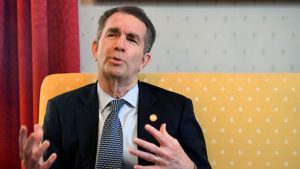 those odds were determined, the total amount wagered, and pay out amounts. Operators argue that sports betting odds differ greatly from the mathematical odds in other forms of gambling such as the lottery, card games, or dice based games.
those odds were determined, the total amount wagered, and pay out amounts. Operators argue that sports betting odds differ greatly from the mathematical odds in other forms of gambling such as the lottery, card games, or dice based games. rules which require an online sports betting app to pair with a physical, brick and mortar casino.
rules which require an online sports betting app to pair with a physical, brick and mortar casino.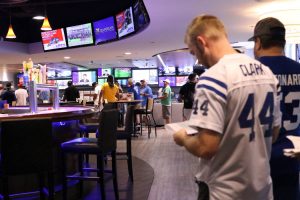 experience.”
experience.”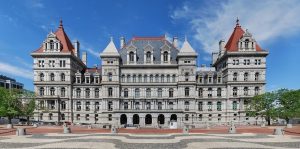
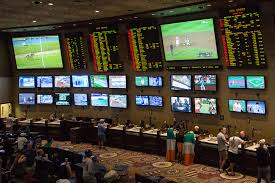 Trump, can find a way to provide more federal money to states, New York may not be forced to turn to other revenue enhancements such as new taxes or cut spending.
Trump, can find a way to provide more federal money to states, New York may not be forced to turn to other revenue enhancements such as new taxes or cut spending.